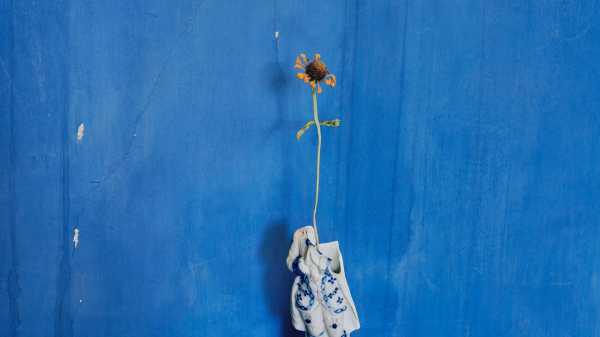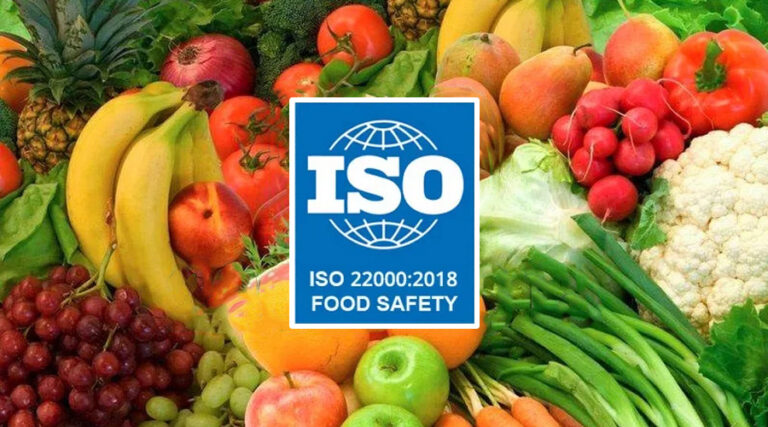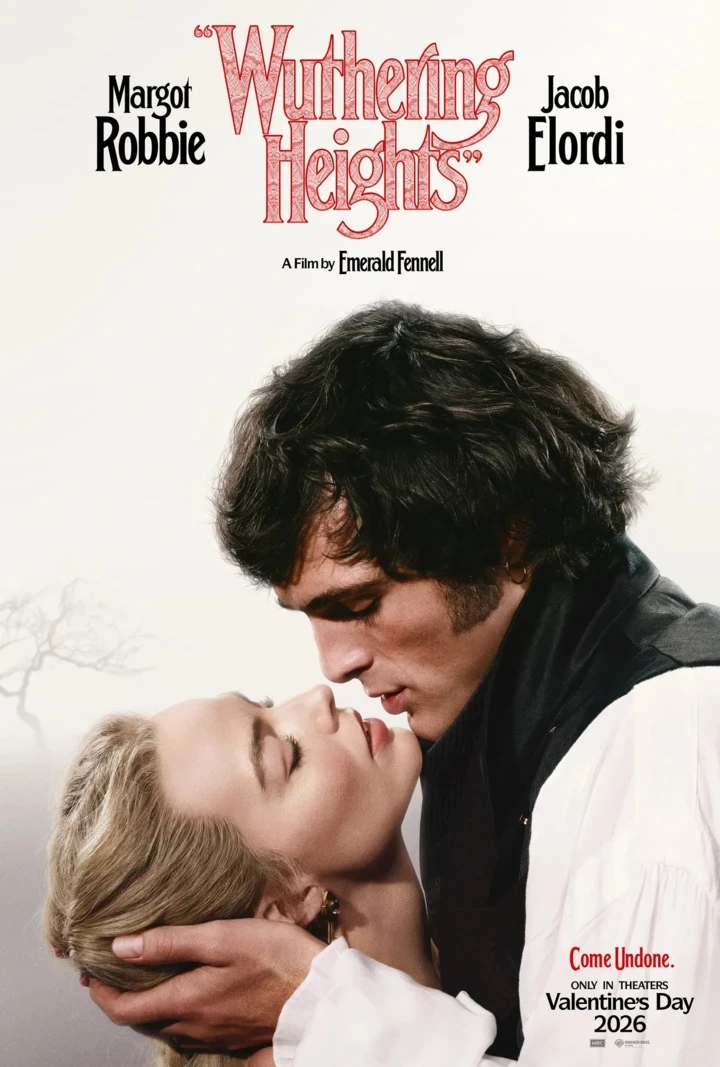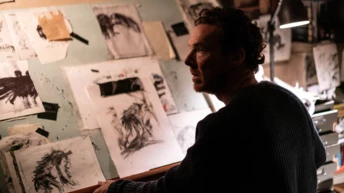
Save this storySave this storySave this storySave this story
Most of us feel raised by the places where we were born, but, at the risk of offending people born in every other place, I believe that people from New Orleans feel an especially filial connection to their city: born of its heat and nurtured by its oils.
I do not know whether I feel this way because of Hurricane Katrina or in spite of it. Perhaps I would feel this way regardless of whether or not the entire city had almost ceased to exist twenty years ago. But I have lost a mother, and I have almost lost a city, and I can tell you that the feeling of one is similar to the other. Neither a mother nor a city is perfect, and both are easy to hate. Until, that is, they are dying. Then it is impossible not to love them.
I love New Orleans. When I am away from it and I hear a love song on the radio, I always imagine that the singer is singing about New Orleans, and I picture the palmettos on Esplanade Avenue, the roots of oak trees cracking the sidewalks. But I cannot live in New Orleans anymore. And moving away from the city where I was born has felt like another irreplaceable loss, somehow sadder and worse than anything else I’ve lost, because this time it’s a loss I chose.
There are two versions of New Orleans, before Katrina and after, just as I suspect there will be two Hunts, two Altadenas, and two of every other city not spared from natural disaster.
Before the storm, I was a child, and I did not realize that there was anything unique about where I lived, except that I knew my people had been there a long time. No one in my family had really lived anywhere else, except my mom, who had gone to Massachusetts on a scholarship for college, but she’d swiftly returned. Mardi Gras was as normal to me as Christmas; red beans and rice were like grilled cheese; and I grew up eating the olives out of Martinis and the cherries out of Old-Fashioneds without recognizing that these garnishes were as soaked in booze as the parents handing them to me.
I remember rainy, windy, guestless birthday parties in September, empty because half of my classmates had evacuated from whatever hurricane was passing through and the other half didn’t want to brave the roads. Even when the weather was calm, there was a sense of lawlessness everywhere. My mother was an attorney for the school board, which was routinely upended by financial scandal. The very flow of the Mississippi River, which had been manipulated via a careful lock system to follow a course intended to prevent flooding, perennially threatened to overrun its banks. In my own house there were fights so severe between my parents that the neighbors would call the police. Every emotion in New Orleans is amplified, either by alcohol or heat or the constant threat of nonexistence.
The adults in our lives were always bemoaning the crime, the weather, and the public schools. Maybe they wanted to raise kids somewhere else, but no one ever left, because they could not imagine living anywhere else. In many ways, New Orleans is disconnected from the rest of the United States, but it is also disconnected from the rest of Louisiana. In the great New Orleans comedic novel “A Confederacy of Dunces,” the bloviated hero, Ignatius J. Reilly, cannot get on a bus to Baton Rouge without suffering a panic attack, and this is the case for many members of my family.
Childhood can be magical, and so I didn’t realize that New Orleans was magical, too. During fall soccer practices I used to stare at the tessellations of waxy oak leaves in the grass, the sun warm on my back. The state’s lieutenant governor was my coach, and when a chicken from someone’s back yard ran onto the field, the game ended and we all played with the chicken. Music was everywhere. We used to drop crab lines at Shell Beach. We spent the period between Three Kings’ Day and Lent stuffing sugared brioche down our throats in the name of cultural tradition. If you got the piece of the king cake with the plastic baby in it, you were required to bring the next cake. Many of us were instructed to hide the baby if we got it; king cakes were expensive.
We rode camels and elephants at the Audubon Zoo. We spread newspaper over tables and poured pounds of boiled seafood onto it. You just had to keep eating and eating, otherwise the heat of the crawfish would catch up to you, and you’d need four glasses of milk to take the sting off your lips. The Saints were a losing team, but everyone cheered them on anyway. Once, my mother and I were walking to our car and it started to rain, and a random woman yelled at us to come wait on her porch.
Mardi Gras was a fever dream. As a child, you could feel the parade booming in your heart and lungs, the grownups swaying from side to side, dizzy from alcohol and the fumes from tractors pulling the floats down St. Charles Avenue. The line between fun and fear was razor thin. We’d hear gunshots a few blocks from the parade route, a float would pass inches from our feet, a grown man would urinate onto a nearby lawn chair, a horse would spook, sparks from the flambeaux would spray into the crowd. When I was four or five years old, I went to a Mardi Gras parade dressed as Superwoman. My mother told me to step away from the street because I was standing too close, but I didn’t listen, and suddenly a marching band was right in front of me. A high schooler with a bass drum, winding up for a big bang, swung his mallet right into my stomach. I flew backward onto the ground, the wind knocked out of me.
By 1988, the year I was born, locals in Louisiana were referring to the eighty-five-mile stretch between Baton Rouge and New Orleans as Cancer Alley. The area has some two hundred petrochemical facilities. When I was nine years old, my mother was diagnosed with an aggressive, nonhereditary form of breast cancer. You had to be twelve to visit the I.C.U., so I was snuck in. We drank Martinelli’s sparkling apple cider and listened to the Beatles. She died six months later.
My mother was hilarious, charismatic, a drinker, late for everything, messy, and smart. If I had trouble with friends at school, she quoted “Hey Jude” lyrics to me, which I had to interpret as best I could. Her name was Maida Jean, which was also her mother’s name. My great-grandmother, who grew up in North Louisiana, had named herself Maida when she was eight years old. My name is also Maida Jean, and I was born on my mother’s birthday.
My father, who was born in New Orleans and who died there just last year, used to always say, “Funny that they call this the Big Easy.”
In August of 2005, Hurricane Katrina killed more than thirteen hundred people in New Orleans and its surrounding parishes. First came the wind and rain, fast and fierce, and then the levees—which had been built by the Army Corps of Engineers to protect against precisely this kind of storm—broke, and the city filled up like a bathtub. I was sixteen years old. I evacuated with my best friend; we drove, with her mother, to her grandmother’s house in North Carolina. My dad said that he wouldn’t leave, but when things became dire he gave in. He and my older brothers were stuck in traffic on I-10 for hours. They ended up at a motel in Houston. The cellphones didn’t work, so I didn’t speak to them for weeks. They didn’t take any photographs with them, nothing of my mother’s. Our house was spared, but things went missing anyway.
I watched as Anderson Cooper narrated footage of the sunken roofs of my city. When you look at a flood like that, you forget that water does, eventually, recede. It felt as though New Orleans would be submerged forever. Would anyone ever be able to return, to live there again? The answer seems obvious now, but it was not at the time. It was, possibly, the end.
I had always loved to see New Orleans on television. The city is small. I recognized the places. But after Katrina I didn’t want to recognize anything. I didn’t want to see the old Italian ice-cream shop in Mid-City, in water up to its windows. I didn’t want to see the Circle Food Store, in the Seventh Ward, rising out of the glassy water like a shipwrecked boat being pulled from the ocean. I didn’t want to hear about another person’s house that had flooded.
After my mother died, the adults in my life repeatedly told me two things. First, that life is not fair. And, second, that my mother would “live through” me. I didn’t understand either of those concepts—I was ten—but the latter always carried the suggestion that it was somehow greedy to want my mother to live through herself, or to want her back. And so, when New Orleans seemed gone, I tried not to want it back, either. I told myself that my memories were enough. But the truth was that I did want my mother back. And I wanted New Orleans back, too. I had been brought up by both, and though both were alcoholics, and both were unpredictable, and neither felt very protective, they had also given me the beautiful things in my life. They had given me life itself.
While evacuated, I ended up in New York. At the high school I attended, in Manhattan, people were confused about why I was starting somewhere new for junior year. I made friends with the school’s security guards, who let me leave during lunch to call my dad and friends from back home. They had lived through 9/11. They must have recognized something in me.
I wondered about things in the way that teen-agers do. Would I still get my braces off by senior year? Would the grades I got at my new school be submitted to colleges? Was it understandable that people were looting? Was it understandable that people were mad at the looters? Who was most responsible for this? President George W. Bush? The Army Corps of Engineers? Governor Kathleen Blanco? What was worse, the hurricane itself or the levee breaks? When would I see my family again? When would people stop dying? Were children dying? How was that possible?
One day, I was sitting in the principal’s office, trying to work out a problem in my schedule, when I heard someone coming down the hallway, snapping his fingers with each step. I recognized him immediately, before he made it to the room where I was sitting; it was my dad, and when we saw each other, after so many weeks, we both started to cry, and we hugged in the middle of a hallway in a school we didn’t know.
I went back to New Orleans after four months. Those of us lucky enough to return, as I was, swore we’d never leave again. My high school had not been particularly diverse before the storm, but afterward it was almost all white. Two-thirds of nonblack New Orleanians returned after Katrina. Only forty-three per cent of Black New Orleanians did.
Public figures emerged: Ray Nagin, the mayor, who insisted that New Orleans would be a “Chocolate City” again; Michael Brown, the head of FEMA, who claimed not to know that displaced people were dying of starvation, thirst, and illness in the New Orleans convention center, days after most national media outlets had reported the story. Bush infamously told him, “Brownie, you’re doing a heck of a job,” giving residents a new line to graffiti on the busted refrigerators, full of rotting food, that had been hauled to the curb all over the city.
Locally, another, more surprising figure came out of the woodwork: an entertainment reporter for the Times-Picayune named Chris Rose, who had a creative epiphany in the weeks following the storm. He began to write columns about the state of the city:
I passed by the Valence Street Baptist Church and the façade was ripped away and I walked in and stared at the altar amid broken glass and strewn Bibles and I got down on my knees and said Thank you but why? why? why? and I’m not even anything close to Baptist.
It just seemed like a place to take shelter from the storm in my head.
The rockers on my neighbors’ front porch are undisturbed, as if nothing ever happened. At my other neighbors’ house—the ones who never take out their trash—a million kitchen bags are still piled in the mound that’s always there and I never thought I’d be happy to see garbage, but I am.
Because it reminds me of my home.
I haven’t been down in the kill zone yet. I haven’t seen the waters. I haven’t been where all hope, life and property are lost.
I have only seen what I have seen, and we took the hit and it is still here. This is where we’ll make our start. This is where we’ll make our stand.
And when everything gets back to normal—whenever that may be—I’m going to do what I’ve been putting off for a very long time and I’m going to walk next door and tell my neighbors that they really do need to start taking out their trash.
What would happen to the thing that existed between all of us, if there was no more city to return to? Amid all the finger-pointing and blame, Rose’s central question sparkled: What did it mean to love this place? And who would we be without it?
I fell in love with two things that year. The City of New Orleans and the essay. What a gift, to be given a voice without having to speak.
Grief is never just about the thing itself. Some argued that New Orleans shouldn’t be rebuilt at all, that it wasn’t fair for the American taxpayer to foot the bill for a city that wouldn’t survive the next big storm. In school, we were supposed to be studying U.S. history, but our teacher pivoted after the storm. We studied Katrina. The students at my all-girls high school dressed up as Bush, Blanco, and Nagin, and we enacted the same debates that were happening on television. Whose fault was this? How do we rebuild? Who will pay for it? Is it worth it? One round, in which I played a newspaper reporter, got so heated that George Bush threw her pencil at me.
So many people never came home. And so many people who did make it home were never the same. Chris Rose stopped meeting deadlines, lost his job, and struggled with addiction. According to a recent article in the Times-Picayune, he became estranged from his family and lives in the Maryland woods now.
In 2007, as a senior in high school, I interned at the New Orleans City Council. My job was to answer the phone line designated for “constituent complaints.” People called all day long. They hadn’t seen their elderly neighbor in three days, and could we send an officer? The storm drains weren’t draining, and it had only rained for ten minutes. They were supposed to get a FEMA trailer, and still no one had called. I was eighteen years old. For each call, I filled out a form, and then I put the form in a folder, and then I went home.
I moved to Ohio for college, where everyone assumed I could drink them under the table. I could not. I missed home. I read Walker Percy and Truman Capote and skipped class to talk to my dad on the phone. He was boiling shrimp, right there in the kitchen. He was taking the dog to swim in the Mississippi River.
I moved back home in 2012. New Orleans was different in a new, shiny way. Graduates of the nation’s top urban-planning programs—M.I.T., Harvard—were coming to the city, with a blank-slate kind of attitude, to improve public transit, install bike lanes, and build urban farms. Every other person I met was from somewhere else, and this made me feel that I was suddenly living in a connected, cool city, and not a ghost-ridden Atlantis. The wave of wealthy, well-educated white kids from other places stirred up enormous debates. Did New Orleans really need more bike lanes? Or did it simply need to armor itself against an inevitable climate catastrophe? Would an upscale bakery make the Seventh Ward less of a food desert?
I made friends with a lot of the transplants. They knew the city better than I did. They “discovered” niche culinary treasures, the best places to buy supplies for costumes, entire neighborhoods. They created beautiful new Mardi Gras parades, on foot, by the river. They came to New Orleans with open, undaunted eyes. They could make it what they wanted it to be.
There is something thrilling about a city that embraces death the way New Orleans does. And I can see how, in those years after Katrina, moving to New Orleans was a way of approaching the void without ever really touching it. You could party like there was no tomorrow, because there probably wasn’t. But for people who grew up there, who had seen what no tomorrow might really look like, it wasn’t a thrill. It was a threat.
People hate the heat of a New Orleans summer. But I’ve always loved it. You can smell everything, and there’s a particular stillness, sitting outside at night, that makes it seem like time isn’t passing, that things will be as they are forever. One summer night, when I was twenty-five, I was sitting on my porch and a horse galloped by without a rider, headed for the river. I’m not sure what happened next. Horses gallop by sometimes in New Orleans, and no one writes an article about it for the newspaper.
When I was twenty-six, I met a young filmmaker at an outdoor storytelling event; we had a COVID wedding, bought a house, had a baby. We threw giant birthday parties in the back yard, gates swung open, a band on the porch.
I thought I’d stay forever. But, when I was thirty-five, I was pregnant with my second child, and abortion was newly forbidden in Louisiana, even in the event of rape or incest. Women with preeclampsia and other life-threatening yet common issues were being denied medically necessary abortions. I told myself that I was scared to have another baby in Louisiana. But I had the resources to leave if anything bad happened, so what was I so scared of? I realize now that I was not scared. I was angry. I felt betrayed by the city I’d defended.
I thought I’d have the baby in New York, then move home. But, even as I made plans for the birth, I saw the prospect of home unravelling. I gave birth in my apartment, in Brooklyn. Three weeks later, my father died. My stepmother inherited the house where my brothers and I had grown up, the place where we’d known our mother, the house that Katrina had spared. Within two months, my stepmother sold the house to a developer, who tore it down.
My younger daughter, Celia, is the first person in my entire family to be born outside of Louisiana since the turn of the twentieth century. She was born in six hours. She knows exactly what she wants and she does not smile at strangers.
My elder daughter, Maida, had taken forty hours to be born. Her favorite game is to buy too many plums and offer them to people on the street. She will approach anyone—a middle-aged man, another child, a Hasidic woman in the park—and introduce herself. “My name is Maida. M-A-I-D-A. And I’m four.”
Maybe where they were born has nothing to do with the people they are slowly becoming. But it’s hard not to notice that Maida is a New Orleans person. Recently, she saw a lobster at a restaurant and asked whether she could have a “big crawfish.” And she still calls the Atlantic Ocean “the bayou.”
One day she won’t. I have loved being from a place with its own nomenclature. Now I am giving it up on someone else’s behalf, too.
I used to walk everywhere in New Orleans. Up and down Bayou St. John, up and down Esplanade, the most beautiful street in the world. Down St. Claude Avenue to get to dance class, up St. Claude to have a drink at Bar Tonique, on the edge of the French Quarter. When I walk in Brooklyn, I sometimes run into people I know. “So, are you guys living here now?” they ask. It’s hard for me to say yes. It’s hard for me to admit that I gave in to whatever call told me to leave home.
I still say we’ll move back. But the hurricanes are getting worse. The Ten Commandments are being pushed into the classrooms. Most of the urban planners I knew a decade ago have moved away. New Orleans has lost more population in the last five years than any other metro area in the United States. A sediment-diversion program, which was expected to save twenty-one square miles in the state’s sinking bayous, was recently cancelled. Too expensive. Governor Jeff Landry just paved the way for Meta to move onto a piece of land in rural northeastern Louisiana the size of seventy football fields, for a data center that is not even required to hire locally. It will use three times the amount of energy, annually, as is required to power the entire city of New Orleans. It will run on fossil fuels.
Every night, in our Brooklyn apartment, my kids and I stand in front of the window, and as I close the blind we say, “Goodnight, New York, we love you!” But I do not love New York. I do not feel the way many people feel about New York—that it is special, zany, chaotic, or magical. I know magic. I know chaos. And, to me, New York is neither of these things. Where I live in New York, the playgrounds are clean and safe, the trash is picked up, and people zoom down the sidewalks pushing seven-hundred-dollar strollers. I do not love New York, and maybe that is why I have chosen to live here. When I walk down a street, I do not think about all the other times I’ve walked down that street. When it rains, and I do not have an umbrella, no one asks if I’d like to wait out the storm with them. This city is not my mother. My mother died a long time ago. ♦
Sourse: newyorker.com







